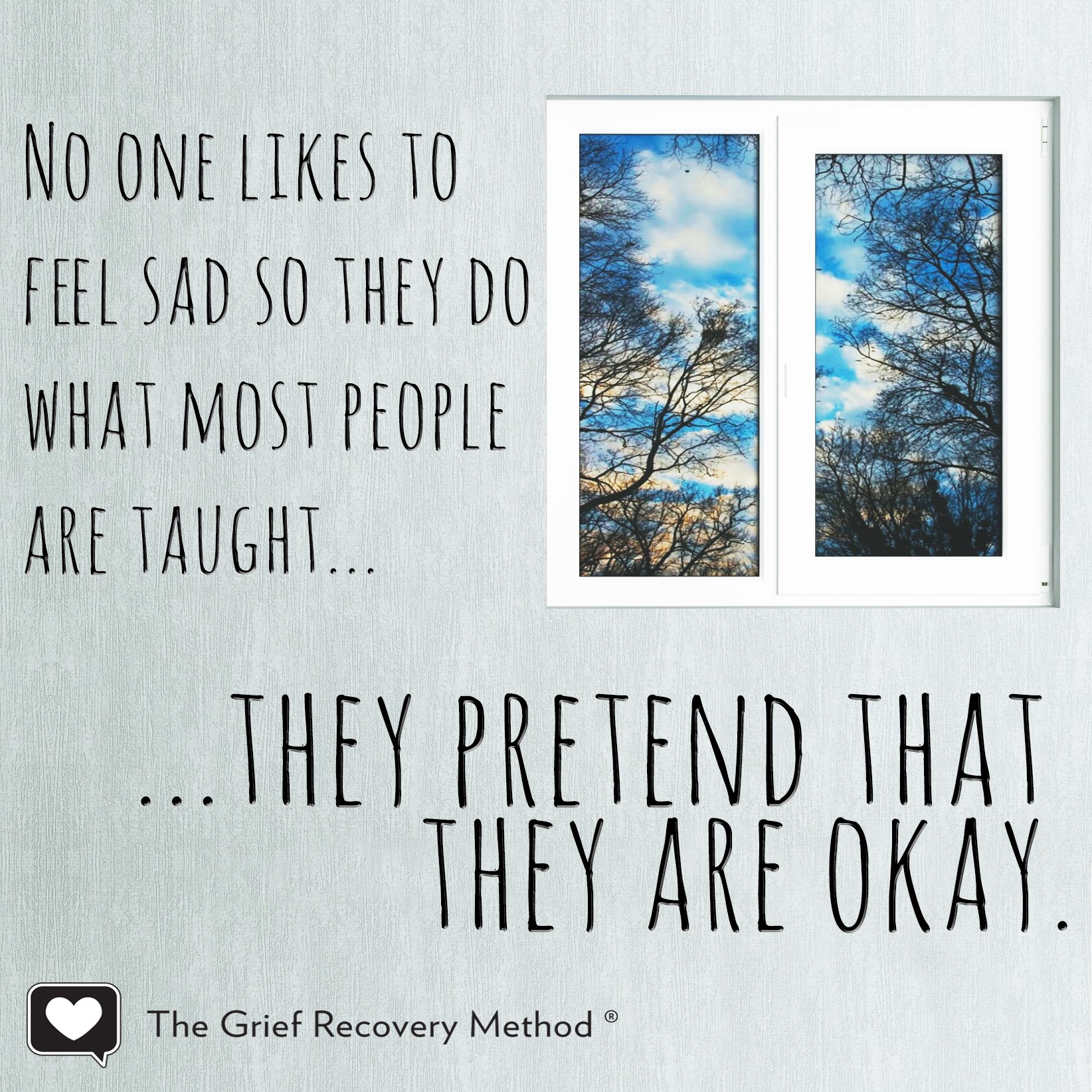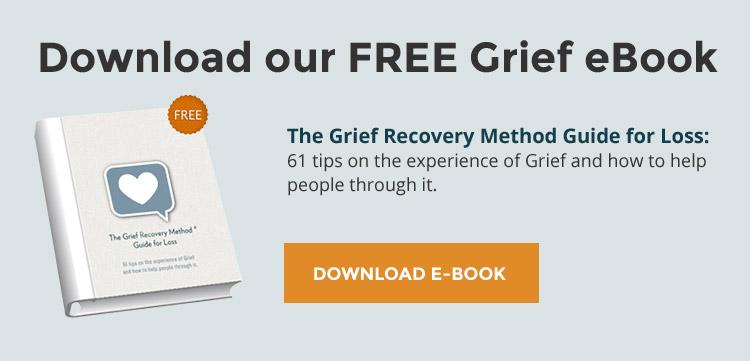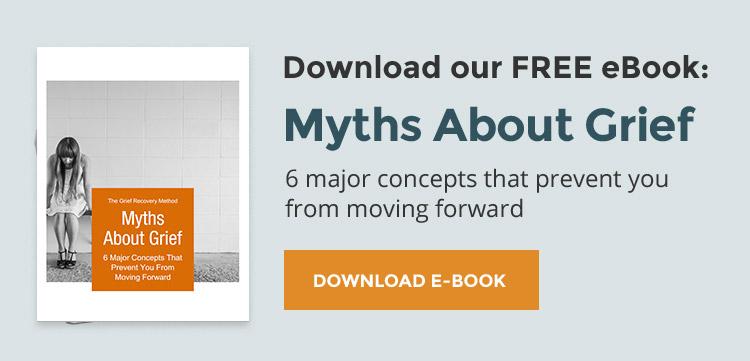Grief can be that “unwelcome friend” that’s always sitting behind you, whispering sad thoughts in your ear. Think of the many times when you saw or heard something that reminded you of a relationship lost. More often than not, it stirred up a fond and cherished memory. Then, just moments later, you began to think of things you had planned to do, but never did. You might think of things you wanted to be different or better in that relationship. You might think about things you wished you might have said, but never shared. That fond memory, and any happiness it brought to your life, is now overshadowed by that deep sense of loss.
Grief is the normal and natural emotional reaction to any major change you experience in life. It attests to the impact that particular relationship has had on your life. Unresolved grief, however, can take away any joy that a positive relationship brought to us, with its nagging reminders of the pain of that loss. Worse yet, if it was not a positive relationship, the painful reminders can overwhelm any chance of future joy.

Grief can be isolating
For many, the ongoing impact of this emotional pain can overpowering. It can also be very isolating! Family and friends may tell you that “they know how you feel,” but the fact of the matter is that they don’t. They may have a sense of how losses have impacted them, but they really have no concept of how your loss in effecting you. Each relationship is unique to that person, which means that how that grief touches your heart is unique to you as well. They may try to “fix” you with various suggestions, but grievers are not broken. They simply need someone to listen without analysis, criticism or judgment.
All of us have had someone tell us that we “need to get over it.” No matter what anyone says, you never “get over” an emotional loss. Human beings don’t have a “delete” button that can be pushed to make us forget. You can, however, take action to survive and thrive in spite of it. To do so is in no way discounting the value of that relationship. There are some people who believe that the proof of the importance of a relationship lost is that they must live in misery forever. This sense of misery, however, tends to dispel the many elements of joy that the relationship every brought to your life. The true testament of a valuable relationship is that you can share the many positive aspects of it with others, without being overwhelmed by your sadness at not making more fond memories.
“Recovery from loss is achieved by a series of small and correct choices made by the griever!”
Recovery is never about forgetting. It’s about taking action to deal with all of the “unfinished business” in a relationship. It involves taking a guided inventory of all of the positive (and less than positive) elements of that relationship and resolving those things you might have wished had been different, better or more. Doing this will allow you to be able to enjoy fond memories, without regrets, and to plan for the future, rather than worrying about what it will bring.
This is the very thing that the majority of grievers really want, but do not believe is possible. I used to have an entire shelf of books dealing with the pain of emotional loss. Some were written by grievers, who shared their painful stories of grief while others were written by “professionals” offering logical suggestions on how to get “over it.” Neither were of any real value in helping me deal with my own grieving experiences. The stories of others’ grief made no real difference in my own, and no matter how logical the professional advice, my grief was emotional, rather than logical. What I, and most other grievers, really needed was a “roadmap” to taking the actions I needed for each of my own unique emotional losses.
I found that roadmap in “The Grief Recovery Handbook.” This was not the story of another’s woe or something written for my head, but rather a step-by-step guide to dealing with my broken heart. It starts at the beginning with the many “myths” most of us learned as ways to process grief experiences and the things that people say to “fix” us, that never really work. It covers those things we try to do to make us feel better, that only help in the moment we are doing them, and moves on into the actions we can take to successfully deal with the unfinished business. The authors, John James and Russell Friedman, lead you through these directed actions with examples of doing the same work in their own lives. They walk with you through the process hand in hand, rather than just telling you what needs to be done. Best of all, it is written to your heart, which is broken, rather than to your head, which is not!

This approach really changed my life!
Taking action with the Grief Recovery Method changed my life. It taught me how to let go of the painful elements of grief that controlled my life, so that I could enjoy and share fond memories with laughter, rather than tears. It made all of my relationships lost ones of value, rather than of burden.
Taking this action in a Grief Recovery Method Support Group can allow you to not only move forward, but also break that sense of isolation that comes with dealing with your loss alone. Instead of being surrounded by others that argue that their own loss s more painful than your own, you share time and progress with people focused in moving through and beyond that overwhelming emotional pain. You have a chance to discover that you are not alone.
I took this action to deal with my own losses more than 30 years ago. I have looked for a better approach over the years, and never found it. Best of all, this method gave me the tools that I needed when other losses happened in my life, so that I could better enjoy those fond memories as well.
Everyone’s grief is different, based on his or her own unique relationships. The Grief Recovery Method offers a roadmap that adapts to your own personal journey to offer you an opportunity to take actions for yourself. It offers those important “small and correct choices” for you!
If you found this article helpful, we suggest you read these from our searchable Grief Blog:
Loneliness, isolation and grief
7 signs you're experiencing unresolved grief



























Add new comment